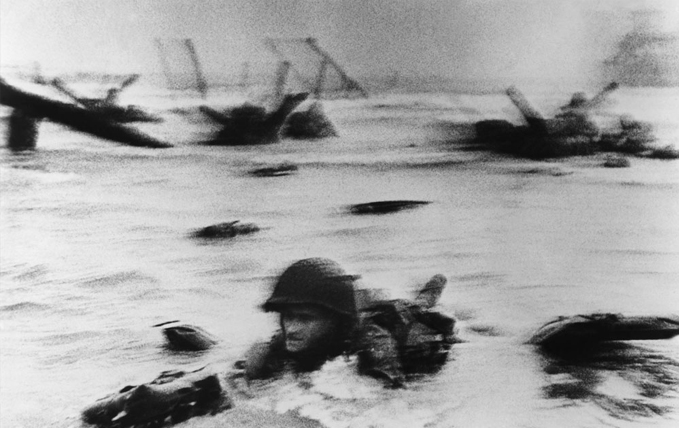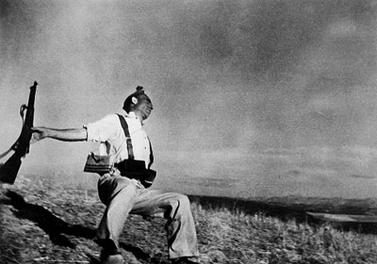you didn't think your nephew had a soul!?
Give me a mind-blowing history fact
255,595 Views |
1220 Replies |
Last: 15 hrs ago by BQ78
I didn't say that! I said I "wondered". Why did you feel the need to rephrase what I said?swimmerbabe11 said:
you didn't think your nephew had a soul!?
To provide more detail: At first appearances, he was beautiful and charming. However, even as a very young boy, he would do horrible things. He constantly lied with the most disarming charm and smile, even when the truth would have served him better. He would go out of his way to do wrong, wrongs that did not benefit him at all. He sexually molested his sisters and brother, my nieces and other nephew. He was impervious to discipline and punishment. This all as an 8-12 year old.
I have had other friends who also adopted Romanian and Russian children and they have had very similar problems. It was a nightmare for the parents.
The first practical guided missile was actually a torpedo in the 1880s that was powered by wires getting pulled out the the back of it. It was designed by an Australian and used by the British for costal defense. Two steam engines on land would each pull a wire that was wrapped around drums in the torpedo which in turn would power the contra-rotating propellers. If you wanted the torpedo to change direction you would slow down one wire which in turn would slow down one of the propellers.
Wiki link
Here's a really good youtube video explaining how it worked.
Wiki link
Here's a really good youtube video explaining how it worked.
A wet primitive TOW missile.
The Magnificent Eleven is a series of Photographs by Robert Capa who went in on D-Day on Omaha beach in one of the early waves. He claimed he took 109 total photos, but a lab error burnt up all by 11 (though there is dispute on that fact).
His photos are some of the most iconic on D-Day:



His photos are some of the most iconic on D-Day:



Are you saying Capa is not a guy you could trust?


First radio controlled air dropped anti ship weapon.
Fritz X was a German guided anti-ship glide bomb used during World War II. Fritz X was the world's first precision guided weapon deployed in combat[1] and the first to sink a ship in combat.
https://en.m.wikipedia.org/wiki/Fritz_X
It's also explained in detail in Rick Atkinson's excellent book, The Day of Battle.
https://www.goodreads.com/book/show/716532.The_Day_of_Battle

Fritz X was a German guided anti-ship glide bomb used during World War II. Fritz X was the world's first precision guided weapon deployed in combat[1] and the first to sink a ship in combat.
https://en.m.wikipedia.org/wiki/Fritz_X
It's also explained in detail in Rick Atkinson's excellent book, The Day of Battle.
https://www.goodreads.com/book/show/716532.The_Day_of_Battle

Was thinking about this when I read about that weird torpedo, but I was thinking about the Hs 293 rather than the Fritz X.lb sand said:
First radio controlled air dropped anti ship weapon.
Fritz X was a German guided anti-ship glide bomb used during World War II. Fritz X was the world's first precision guided weapon deployed in combat[1] and the first to sink a ship in combat.
https://en.m.wikipedia.org/wiki/Fritz_X
It's also explained in detail in Rick Atkinson's excellent book, The Day of Battle.
https://www.goodreads.com/book/show/716532.The_Day_of_Battle
https://warbirdsresourcegroup.org/LRG/hs293.html

Maybe posted already, but the US Marines had more casualties on Iwo Jima than the Japanese did. Only battle the USMC has fought where this occurred.
USMC
Main battle phase:
6,821 dead
19,217 wounded
2 captured
2,648 fatigued
137 tanks destroyed
28,698 total
Japanese
Main battle phase:
17,845 to 18,375 KIA/MIA
216 prisoners
USMC
Main battle phase:
6,821 dead
19,217 wounded
2 captured
2,648 fatigued
137 tanks destroyed
28,698 total
Japanese
Main battle phase:
17,845 to 18,375 KIA/MIA
216 prisoners
agracer said:
Maybe posted already, but the US Marines had more casualties on Iwo Jima than the Japanese did. Only battle the USMC has fought where this occurred.
USMC
Main battle phase:
6,821 dead
19,217 wounded
2 captured
2,648 fatigued
137 tanks destroyed
28,698 total
Japanese
Main battle phase:
17,84518,375 KIA/MIA
216 prisoners
What's the Jap number supposed to be? 1.7 billion seems high.
Yes, casualties encompassing wounded, killed, and MIA, but the Pacific Island Battles were amazing statistically from the Japanese side on how many died and how few were taken prisoner:
Iwo Jima:
17,845-18,375 KIA/MIA
216 prisoners
Peleliu:
12,033 dead (excluding stragglers)
360 prisoners
Okinawa:
94,136 soldiers and sailors dead (all causes)
7,401 captured (by 30 June)
Guadalcanal:
Army: 19,200 dead, of whom 8,500 were killed in combat
1,000 captured
Tarawa:
4,690 killed (including both construction laborers and Japanese soldiers),
At least 40% of defenders were killed during the naval bombardment before H-hour
17 soldiers captured
Another amazing factor was how many soldiers from both sides died from environmental causes and not as a direct result of battle.
Iwo Jima:
17,845-18,375 KIA/MIA
216 prisoners
Peleliu:
12,033 dead (excluding stragglers)
360 prisoners
Okinawa:
94,136 soldiers and sailors dead (all causes)
7,401 captured (by 30 June)
Guadalcanal:
Army: 19,200 dead, of whom 8,500 were killed in combat
1,000 captured
Tarawa:
4,690 killed (including both construction laborers and Japanese soldiers),
At least 40% of defenders were killed during the naval bombardment before H-hour
17 soldiers captured
Another amazing factor was how many soldiers from both sides died from environmental causes and not as a direct result of battle.
Its not surprising given the unique characteristics of that particular battle.
Spruance wanted to take Iwo in Aug of 1944, when there were ~ 6,000 defenders on the island and the cave networks/bunkers had not been completed. He was overruled by Nimitz in favor of taking Peleliu.Who?mikejones! said:
Its not surprising given the unique characteristics of that particular battle.
The HMS Seraph was a submarine that served in several special missions during WWII. One of which was Operation Kingpin, which was to "secretly take aboard French General Henri Giraud, his son, and three staff officers for a meeting with Eisenhower in Gibraltar, with the intention to enlist the support of the pro-Vichy forces at Oran and Casablanca to the Allied cause. ...because Giraud flatly refused to deal with the British, and there was no US boat within 3,000 miles (4,800 km), HMS Seraph briefly became the "USS Seraph", flying the US Navy ensign...In the spirit of things the British crew affected American accents that they imitated from the movies. However, it fooled nobody including Giraud, who had been told of the deception by Wright.
Due to her special nature, when she was decommissioned in 1962, the conning tower and a torpedo loading hatch were preserved as a memorial at The Citadel in Charleston, South Caroline. Eisenhower's Deputy - General Clark- was aboard the ship during Operation Flagpole, which carried him to North Africa for secret negotiations with Vichy French officers. Clark was the President of the Citadel from 1954-1965.
This monument is the only shore installation in the United States where the Royal Navy ensign is authorised to be permanently flown by the British Admiralty. It flies alongside the US flag to commemorate Anglo-American cooperation during World War II.

Due to her special nature, when she was decommissioned in 1962, the conning tower and a torpedo loading hatch were preserved as a memorial at The Citadel in Charleston, South Caroline. Eisenhower's Deputy - General Clark- was aboard the ship during Operation Flagpole, which carried him to North Africa for secret negotiations with Vichy French officers. Clark was the President of the Citadel from 1954-1965.
This monument is the only shore installation in the United States where the Royal Navy ensign is authorised to be permanently flown by the British Admiralty. It flies alongside the US flag to commemorate Anglo-American cooperation during World War II.

That's awesome. Thx.
Seraph also carried "The Man Who Never Was" - Operation Mincemeat.
yup. i just finished that book.
interesting thing about the movie is that the real life Ewen Montagu who was a key part of Operation Mincemeat had a role in a scene where he played an air Vice Marshall questioning the actor who was playing Ewen Montagu.
interesting thing about the movie is that the real life Ewen Montagu who was a key part of Operation Mincemeat had a role in a scene where he played an air Vice Marshall questioning the actor who was playing Ewen Montagu.
Corinne Griffin was born in Waco on November 21st, 1894. She became well known a silent film star known for such films as "The Garden of Eden" and "The Lilies of the Field." She was the wife of George Preston Marshall owner of the Washington Redskins and wrote the team's fight song "Hail to the Redskins." She died on July 13th, 1979, she was cremated, and her ashes were scattered at sea.


At first glance I thought her arms were of a werewolf
- - - - - - - - - - - - - - - - - - - - - - - - - - -



True:
Quote:
It was in fact the humble chilli which made Christopher Columbus, who discovered America, falsely believe that he had indeed found India. The legendary explorer and navigator had set out in his flagship Santa Maria in quest for the exotic spices in India. However, he mistook chilli for pepper because of its spiciness and heat. This must be the reason why Columbus called it the chilli pepper. Like the bell pepper and tomato, chilli too belongs to the Solanaceae family.
Fiery travels
Christopher Columbus, who set out from Spain in search of India, in 1492, is the first European to have encountered the chilli. When he returned to Spain, Columbus didn't forget to carry some of the chilli plants as well. In the beginning, chilli was mainly grown in the botanical gardens of the Spanish monasteries. Later, it was used in various dishes as a substitute for pepper. During those days, pepper had incredible trade value and was even used as currencies in many countries. Chilli, however, soon became the cheap substitute for the exclusive and expensive pepper. From Spain, the chilli then travelled to Italy and was hugely cultivated in Calabria, a southern Italian province. It was the Portuguese traders who introduced chilli to south Asia.
There are over 1,000 mine fires burning in the world, most in China. Most are the result of coal seams running through the ground. In the US, the Comstock mine in Nevada has been burning since 1869. But the longest burning one seems to be at Burning Mountain in NSW Australia, which has been burning for over 6,000 years, only 100m below the surface. That fire is moving south at about 3 feet per year.
The last casualties of WW1 happened in 2014.
And yes, they can absolutely still explode. As recently as 2014, two construction workers in Belgium were killed when they disturbed an unexploded shell, technically making them the last casualties of WW1.
— The Critical Drinker (@TheCriticalDri2) January 12, 2025
Last, or latest?
Hopefully both? But unlikely. They keep finding these sorts of things all over Europe. Usually no one is killed though.
I had posted earlier in the thread somewhere about the "Iron Harvest" in Belgium each year, averaging over 150 tons.
https://theworld.org/stories/2023/08/04/iron-harvest-belgian-team-unearths-unexploded-ammunition-wwi
https://theworld.org/stories/2023/08/04/iron-harvest-belgian-team-unearths-unexploded-ammunition-wwi
Another 300 years? Good luck to the future generations building and farming. I guess the frost brings them up, much like rocks dropped from glaciers every winter up north.
typically when they plow fields in they bring them up.
I forgot where I read it, but the dud rate on artillery in WW1 was insanely high, 10-25%.
I forgot where I read it, but the dud rate on artillery in WW1 was insanely high, 10-25%.
Soil shrinks when dry, and swells when wet. Near the top, it also swells during a frost, if there is enough water and cold enough.
So imagine a big rock in a field. Every time the soil moves, a little soil is disturbed and sifts underneath the rock. Over time, the rocks tend to move up, as more and more soil sifts underneath.
Once they get high enough, yes, a plow can hit them and pull them the rest of the way up. But most plowing is in about the top 6 inches of soil.
So imagine a big rock in a field. Every time the soil moves, a little soil is disturbed and sifts underneath the rock. Over time, the rocks tend to move up, as more and more soil sifts underneath.
Once they get high enough, yes, a plow can hit them and pull them the rest of the way up. But most plowing is in about the top 6 inches of soil.
When the Union was coming to Houston the Confederates dumped the munitions store into Buffalo Bayou downtown to keep the yanks from getting it.
Be careful if you ever anchor or dredge there!
Be careful if you ever anchor or dredge there!
CanyonAg77 said:
Soil shrinks when dry, and swells when wet. Near the top, it also swells during a frost, if there is enough water and cold enough.
So imagine a big rock in a field. Every time the soil moves, a little soil is disturbed and sifts underneath the rock. Over time, the rocks tend to move up, as more and more soil sifts underneath.
Once they get high enough, yes, a plow can hit them and pull them the rest of the way up. But most plowing is in about the top 6 inches of soil.
Murray M-i-l-f-ord would be proud of you
Israel isn't the only officially Jewish jurisdiction in the world. In far Eastern Russia is the Jewish Autonomous Oblast. It was set up in 1928 to try to give an area for Jews to live and work, plus boost the population of Eastern Russia which was really low. Jews were often unemployed at the time since they weren't allowed to be craftsmen and small business owners. Of the first group that arrived, half left the next year due to how harsh the conditions were. The Jewish population in the area peaked in the late 1940's and has dropped to less than 1000 people now.
Fascinating! The far eastern reaches of Russia have always intrigued me. Some very remote places out there with interesting history attached.
Vladivostok means 'ruler of the east'. (This was a question on jeopardy a few days ago). Vlad=to rule, Vostok=the east.
The 'White Russians' (non-commies, the Czech brigade) didn't withdraw from there until around 1922.
The 'White Russians' (non-commies, the Czech brigade) didn't withdraw from there until around 1922.
Civil War surgery with chloroform could be tricky. Application of too much during surgery could be a death sentence in itself. That is why after surgery was complete, an attendant would start fanning the patient's face to increase their intake of oxygen and get them to wake up. If they took too long to wake up, more chloroform would be applied by a doctor but not to their mouth, rather to their scrotum. The quick evaporation of the chemical would cause an instant cold, causing the patient to suck in his breath. Sort of like jumping into a cold lake.
so the first use of icy hot on the ballzBQ78 said:
Civil War surgery with chloroform could be tricky. Application of too much during surgery could be a death sentence in itself. That is why after surgery was complete, an attendant would start fanning the patient's face to increase their intake of oxygen and get them to wake up. If they took too long to wake up, more chloroform would be applied by a doctor but not to their mouth, rather to their scrotum. The quick evaporation of the chemical would cause an instant cold, causing the patient to suck in his breath. Sort of like jumping into a cold lake.
Featured Stories
See All
27:26
5h ago
1.2k
19:50
19h ago
7.6k
4:28
4h ago
429
Game Highlights: No. 8 Texas A&M 69, Georgia 53
by Matthew Dawson
Photo Gallery: No. 8 Texas A&M 69, Georgia 53
by Zoe Kelton
3 Days 'til: Outlining what Texas A&M's 'best version' looks like in 2025
by Ryan Brauninger
LukeEvangelist
Postgame Discussion: No. 8 Texas A&M 69, Georgia 53
in Billy Liucci's TexAgs Premium
7



